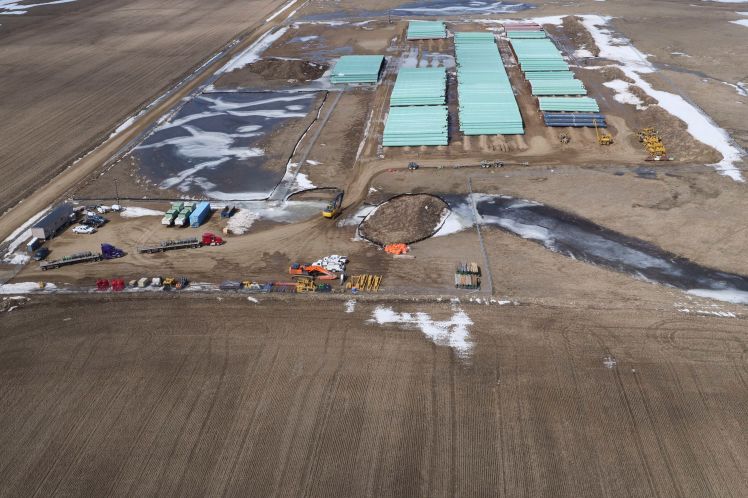In recent weeks we did some risk assessment related to a major pipeline under development in the U.S., and we thought we would share some insight with you.
In light of the April 2020 Montana court decision to vacate the Army Corps of Engineers (Corps) Nationwide 12 (NWP12) permit for oil and gas construction projects, developers are wary of its wide ranging implications for ongoing project permitting and schedules. Although the case was brought specifically upon TC Energy and its Keystone XL Pipeline, the court ruled against the premises of the entire NWP12 program, resulting in the Corps suspending indefinitely new approvals.
For background, under the National Environmental Policy Act (NEPA), Clean Water Act (CWA), and Endangered Species Act (ESA), the Corps uses its longstanding NWP12 program and protocol to perform environmental assessment and conduct inter-agency consultation for utility projects, e.g. with the Fish and Wildlife Services (FWS) on endangered species and their habitats. The ESA requires the Corps to determine “at the earliest possible time” whether any action it takes may affect listed species and critical habitats. When reissuing the NWP12 program in 2017 the Corps determined that no programmatic consultation with FWS was necessary (though project-level consultation is necessary) since one of the general conditions of all permits requires the permittees to notify the Corps of such actions. The court appears to find this a bit of a circular logic and remanded NWP12 back to the Corps for re-evaluation. Subsequent appeals by industry and Department of Justice for a stay had not been successful.

Industry watchers predict a wave of lawsuits to challenge currently permitted and future pipeline projects and a long delay in major projects development schedule. In fact, the Sierra Club did exactly that on April 30 and filed a motion for injunction in June to challenge the Corps on approving Kinder Morgan’s Permian Highway Pipeline (PHP) from Permian Basin to Agua Dulce, adding to its legal trouble from a City of Austin lawsuit and Hays County permit revocation due to an HDD frac-out. Although PHP and Keystone XL have done project-specific consultation with the FWS on identified endangered species, the Corps approval was allegedly based on flawed premises. The outcome of this case will set the tone for the slate of projects currently under development or construction.
From our experience and the experts we consulted, the NWP12 program is an expedient way to get to permit approval. Although some Corps districts have since explicitly stated that currently approved projects are allowed to proceed, they are still subject to legal challenges. Projects that are under review have been suspended. As alternatives to NWP12 if the Montana decision is not overturned or the Corps cannot rectify the “deficiency”, project proponents can explore other options such as 1) applying under a different NWP program, e.g. maintenance, repair… 2) avoiding water crossings, or 3) applying for project-specific permits.
Options 1 and 2 are usually not viable for new projects or require extensive route/technical changes. Option 3 will most certainly result in added duration in permit processing time. Although the environmental/biological studies and field work involved in a project-specific permit are equivalent to that of an NWP12, the key issue is, in our opinion, likely not in the owner’s control. In the Montana lawsuit the Corps cited 5500 current projects awaiting verification and 264 days on average to process each individual permit due to staff workload. COVID-19 will definitely add to the delay. In addition, a project-specific permit requires an individually prepared Environmental Assessment (EA) or Environmental Impact Statement (EIS), as well as a public comment period along with time to respond from agencies. These activities can add substantial amount of timing uncertainty in upfront project development. Certain mitigation measures can help and developers/investors would be wise to investigate and understand the risk and tradeoffs.
We provide advisory and project services for oil & gas midstream sector. We conduct due diligence for lenders, private equities, operators, and investors by evaluating asset quality, operations, system design, capital budgeting, project feasibility etc. We can be a valuable resource to anyone needing an expert opinion on pipelines, gas plants, terminals and other midstream assets.
Regards,
Jeff Lee
Kronos Management

You must be logged in to post a comment.